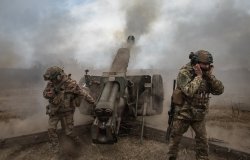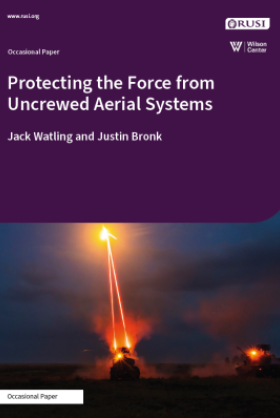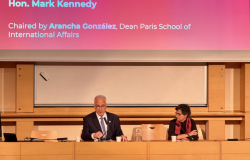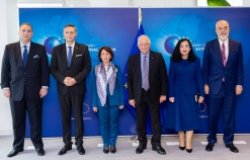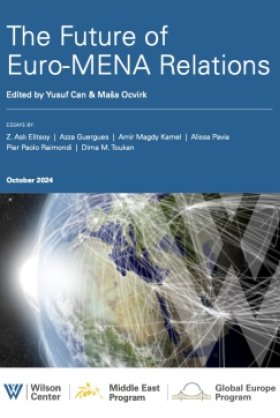The hot, flat, insecure world: a governance test
Article submitted and published on opendemocracy.net website. August 21, 2009
The hot, flat, insecure world: a governance test
The often bewilderingly fast pace of change that defines today's globalised world more often than not escapes the categories that scholars and journalists reach for to capture it - though at the height of a northern-hemisphere summer and amid the ever-present awareness of climate change, Thomas Friedman's pithy "flat, hot and crowded" feels as accurate as they come. What makes the era so hard to define is not just the constancy of change but the fact that it is happening in so many fields simultaneously. The substantial shifts of power in global politics and economics, the dynamic inventiveness of new communications technologies, and the explosion of scientific and medical discoveries are just a few examples; together they seem to make "definition" itself, at least if that is understood as an attempt at fixity, near-impossible.
If the attempt continues, it is in great part because human beings are a "meaning-making" species as part of their nature. But it is also because in this historical period, the rapidity of change is forcing us to confront two unavoidably large and potentially destructive realities in particular: the phenomenon of anthropogenic climate change, and the fact that dominant understandings of "security" no longer suffice (if they ever did) to protect us from harm. What may yet define this era is how these two realities combine, and what forms of global governance we can create to address the result.
The big six
What follows is a brief attempt to characterise the broad features of the early 21st-century world, in terms of six big "c" words; to emphasise the need to find new principles, rules, agreements and structures that can tackle problems of global magnitude, above all (two more big "c" words) climate change; and to ask, in a critical period of climate-change diplomacy, what kind of "global governance" can make a difference here.
Today's world is connected; complex; competitive, yet demands intense cooperation; it is also dominated by confrontation and a visible corrosion of the "west's" global influence. Let's look at each of the six dimensions more closely.
Connectivity. More than ever, countries, communities, networks, identities, markets, sectors, companies, individuals, organisations, non-state actors are connected with one another both tangibly and virtually. This connectivity unavoidably gives all their interrelations new forms of relevance and potential significance - whether between bigger or smaller states; more central or more peripheral actors; more moderate or more radical elements; with like-minded partners, rivals or opponents (see David Singh Grewal, Network Power: The Social Dynamics of Globalization [Yale University Press, 2008]).
Complexity. The present global reality is deeply complex in several dimensions. The interconnections between issues and policies make present challenges - political, socio-economic, environmental and security - intensely complicated. This complexity results often from the potential knock-on effects and indirect consequences that may be caused in one area, region or sector as a result of a development in another seemingly unrelated and even geographically distant area, region or sector. The demand for increased policy coherence and integrated approaches is ever-present though obviously difficult to achieve.
Competition. Competition for resources, for access to energy sources and energy routes, for opportunities, for markets, leverage, influence or outreach appears to be ever more pressing between and within regions, among allies and adversaries. In addition, after what was in retrospect a brief interlude that followed the end of the cold war, competition between value systems and ideas has returned to help frame global politics (see Fareed Zakaria, The Post-American World [WW Norton, 2008]).. This time, however, it is not taking place strictly between states or alliances of states; non-state actors, multinational actors and transnational networks or communities are also calling the stakes and making their claims to influence, leverage and resources.
Cooperation. At the same time, in a fast-paced globalised condition where issues are interconnected and competition is high, cooperation becomes imperative. A recognition of the many aspects of what were previously thought to be single and isolable problems, and the degree of (direct or indirect) interdependence between sectors, make cooperative solutions imperative. The crises of debt, employment and trade imbalances, of food insecurity and resource management, make it clear that such issues can only be properly addressed in a shared framework.
Confrontation. The global outreach of new regional powers and the recovery of such outreach by former international powers is accompanied by more outspoken, confident and assertive expressions of their world views, values and interpretations. In parallel, other forms of large-scale if often ad hoc and issue-based alignment develop (eg north vs south or Islam vs west) which can make confrontation the operative mode in discussion of many aspects of domestic and international politics (for example, the social inclusion of marginalised Muslim population groups in western societies; international migration trends; transnational informal networks among Muslim communities; international terrorism and its links with radical Islamist groups; the proliferation of WMDs). As these actors react to established norms, confrontation on matters of principle and substance are ever more likely. This may either serve as a driving force or an obstacle to cooperation between countries and alliances. In either case, it increases the complexity of any given situation as well as the competition for resources, alliances and influence.
Corrosion The relative decline of the west's global influence began to be evident during the George W Bush years, as the quagmire of Iraq drained the United States in particular of political capital and authority. This decline is now manifest in the effects of the US- and Europe-centred global financial crisis. The US and the European Union countries struggle with attempts to manage and overcome the crisis and undergo structural reforms that will relaunch their economies; whereas rising states such as China, India, Brazil, and the Gulf countries are expanding their economic, financial and political influence and significance (as witnessed by the G20 meeting in London in April 2009 and the forthcoming summit in Pittsburgh on 24-25 September). There is in effect little doubt that power is being redistributed - globally, nationally, transnationally; and also among state and non-state actors (see Krzysztof Rybinski, "A new world order", 4 December 2009).
These six characteristics, singly and in combination, impinge directly on currently dominant perceptions of security. States, organisations, informal networks, communities, political and military alliances see all dimensions of their security and prosperity more interconnected and interdependent than ever before. No issue better illustrates this than the challenges of addressing climate change.
The climatic moment
The security and humanitarian challenges posed by climate change and environmental degradation are in every way connected, complex and interdependent. So too are the root causes that need to be addressed, and the policy responses that have to be adopted and implemented in order to manage or mitigate the effects of climate change.
The trouble is that any meaningful attempt effectively to address climate change must come in the form of a global agreement, because only through cooperation at all levels - from the local to the global - can some of the impacts of climate change or some of the trends of environmental degradation be dealt with. Whether it is tackling deforestation, desertification, rising sea-levels, high carbon-emissions, protecting endangered ecosystems, or ensuring food security, the commitment and involvement on the part of very different actors is necessary.
The United Nations Environmental Programme describes climate change as the single greatest challenge facing environmental regulators. Yet it involves much more than regulators. It engages actors as varied as the automobile industry in Detroit; the enthusiastic consumers of the Indian Tata Nano; private-sector investors in renewable-energy projects in Africa; national governments around the world; activist NGOs; and the petrochemical or building and construction sectors. These are actors with different and more often than not competing short-term interests, stakes and even ideological perspectives. To persuade all of these actors to agree on a global, binding agreement that will be functional is a huge task for those presently involved in climate-change diplomacy.
The relentless impacts of global warming make this diplomatic timetable a matter of urgency. On 7-18 December 2009, environment ministers, climate negotiators and officials will meet in Copenhagen under the UN Framework Convention on Climate Change (UNFCCC) to agree a new climate treaty as a successor to the Kyoto protocol. It promises to be one of the decisive tests of the ability of the world's emerging governance order to make sense of the new era.
About the Author
Ruby Gropas
Research Fellow, Hellenic Foundation for European and Foreign Policy (ELIAMEP) Athens, Greece

Global Europe Program
The Global Europe Program is focused on Europe’s capabilities, and how it engages on critical global issues. We investigate European approaches to critical global issues. We examine Europe’s relations with Russia and Eurasia, China and the Indo-Pacific, the Middle East and Africa. Our initiatives include “Ukraine in Europe” – an examination of what it will take to make Ukraine’s European future a reality. But we also examine the role of NATO, the European Union and the OSCE, Europe’s energy security, transatlantic trade disputes, and challenges to democracy. The Global Europe Program’s staff, scholars-in-residence, and Global Fellows participate in seminars, policy study groups, and international conferences to provide analytical recommendations to policy makers and the media. Read more


